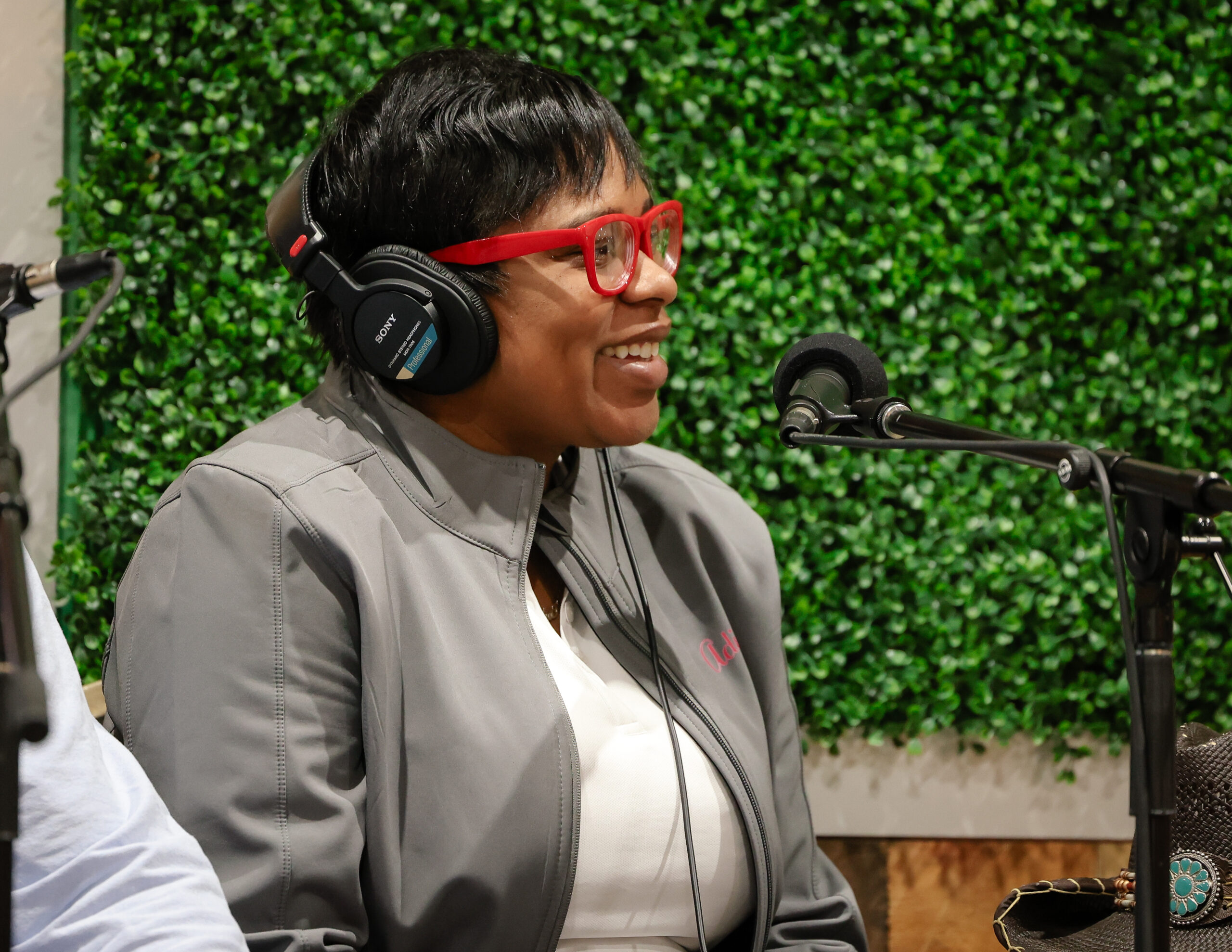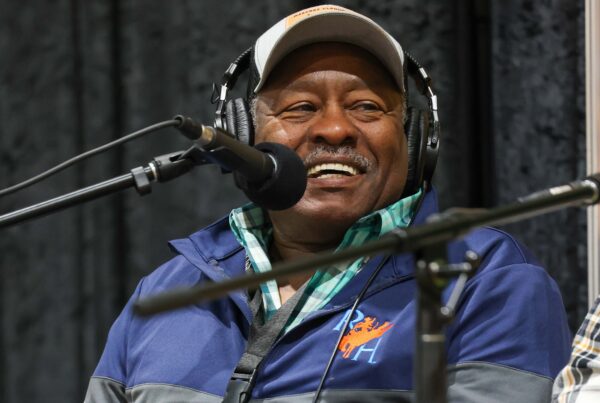When we talk about a celebration of Texas culture, Black Heritage Day on March 1 at the Houston Rodeo is a case in point.
Before there was such a thing as the rodeo in Texas, there were cowboys riding the trail together. That’s a tradition that Adia Dightman is helping to keep alive in the 21st century.
She was part of the big trail ride that kicked off the Houston rodeo and she’s active with her family. Her family including that of her grandfather, the “Jackie Robinson of Rodeo,” Myrtis Dightman, and her father Myrtis Dightman Jr., trail boss of the Prairie View Trail Riders Association.
Adia Dightman joined Texas Standard live at the Houston Livestock Show and Rodeo. Her father connected via phone while on the road from setting up another rodeo. Listen to the interview above or read the transcript below.
A portion of this transcript was cut due to audio difficulties. The rest has been edited lightly for clarity:
Texas Standard: Adia, tell us about the trail ride that you just finished. Where did you start? How long was that?
Adia Dightman: Okay the trail ride, which is led by my father, starts in Hempstead, and they come all the way down to Memorial Park here in Houston.
What is that, like 80 miles or so?
Adia Dightman: It is about 80 miles. It is a rich tradition of wagons that are older than me. I’m a baby to the trail ride compared to some of the women and men that have been on the ride for more than 30 years.
A lot of this is about reaching out to young folks, showing them how to use the wagons, all that. Is that right?
Adia Dightman: Yeah. It’s very important that the next generation starts when they’re two years old.
Two years old?
Adia Dightman: There are young babies on the trail ride every year. I myself am a new mom. And next year, when she turns two, she will be there.
The Prairie View Trail Ride has an organization called 7W that basically teaches these young folks to care for their animals. You know, horses are a big responsibility. And so if you teach them that, they will continue to keep the legacy that my grandfather, Dr. Poindexter and James Francis started in 1957.
» GET MORE NEWS FROM AROUND THE STATE: Sign up for Texas Standard’s weekly newsletters
Black cowboys have been a part of Texas history since the early 19th century, first working on ranches throughout the state. Why has this been such an important part of your life? Do you live on a ranch yourself or what?
Adia Dightman: No, I don’t live on a ranch, myself. You know, Houston is city country.
But, you know, we can go from both worlds and when we go back to Crockett for our family rodeo, which turns 35 this year, we get a good piece of that old Western feel.
Multiple generations are on the ride, and, you know, the wagons are very old. And so you had to have the technology to keep these wagons up or have them disappear throughout time, right? So trying to keep that history, the trail is an active history moment, I would say.
You know, years ago, when I first visited Houston, I actually discovered trail riding myself when I had heard about a group of Black trail riders who were getting together. And it seemed like such an antiquated sort of thing, but this is part of a bigger community that’s all across Texas – this trail ride, right?
Adia Dightman: Yes. Different communities come together. I believe there are 11 that participate actively in the Houston Livestock Rodeo.
The PV Trail Ride has been going since 1957, and others have joined. So Houston does a really good job, I believe, of keeping that history alive and having the trail riders kick off the season.
There was an interesting dynamic after World War II – you had a lot of folks who were returning home from the war and they moved to Houston to be a part of the burgeoning oil industry there in Houston. Zydeco planted its roots here in Houston – a big part of the Black community. And the trail ride became a real prominent part of this scene, right?
Adia Dightman: Yes. Like even like our cousin, Jonathan Dightman, he plays in a zydeco band and he plays on the the kickoff night. So our family is definitely deep in this culture.
How do people learn more about trail riding? If they wanted to get involved, say, how do you find out more?
Adia Dightman: You know, that is a great question for my father.
Well, Myrtis, you still with us? What about folks who want to find out more about how they might be able to get involved in trail riding and just learn more about the community and the culture we have?
Myrtis Dightman Jr.: We have a website, also a Facebook page. Our website is PVTRA.org. They can go and find that information about the trail, when we have our meetings or when we’re getting ready for Houston and the livestock show and rodeo.
So that’s probably the best way to get a hold of us, is on the website. Or go to Facebook. Either way, we’re there.
Since this is not your first rodeo, as they say, what is it about the Houston rodeo that makes it so special?
Myrtis Dightman Jr.: The scholarships that they give away. I mean, you can’t ask for no more. They give millions of dollars.
And so that’s what’s exciting. That’s what we do. Not is only our name after the Prairie View A&M, which is a college. A lot of money they donate to Prairie View A&M, because it’s an agricultural school.









